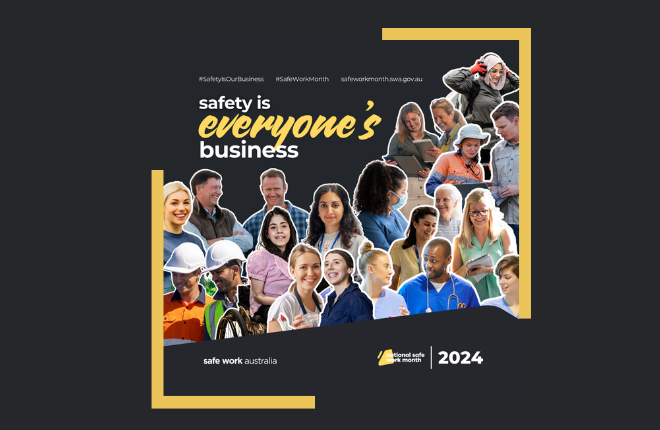How to keep full-time staff and grown loyalty from within

Strategies for Improved Staff Retention
Why people leave…
A 2015 survey by EY of 9,700 full-time employees in eight of the world’s largest economies: the United States, Brazil, Mexico, the United Kingdom, Germany, India, China and Japan, found that people leave when;
- departments don’t encourage teamwork (71%)
- bosses don’t give employees some flexibility in when and where they work, such as telecommuting (65%)
- there’s a sense that you’ll be penalised if you opt for a flexible work schedule (67%)
- there’s very limited access to mentors 50%
Top Reasons why Workers Quit their Jobs >> CLICK HERE
Gallup Study
A new Gallup study released in April 2015 sheds new light on worker-manager relationships, finding that about 50% of the 7,200 adults surveyed left a job “to get away from their manager”, specifically those who failed to:
• Recognise achievements and acknowledge the value employees add to the organization
• Set clear expectations
Half of us quit our jobs because of bad bosses >> CLICK HERE
“Outstanding” employees listed each item among the top four reasons for their resignations;
- Loss of faith in management 74%
- Feeling unappreciated 67%
- Feeling bored or unchallenged 54%
- A highly politicised workplace 50%
(Franklin C. Ashby and Arthur R. Pell, Embracing Excellence: Become an Employer of Choice to Attract and Keep the Best Talent (Prentice Hall Press, 2001), 250-252)
Top 5 Employee Complaints
1. “It doesn’t feel good around here”
2. “They wouldn’t miss me if I was gone”
3. “I don’t get the support I need to get my job done”
4. “I don’t have any opportunity for advancement”
5. “They don’t offer adequate employee compensation”
Top 5 Employee Retention Strategies
1. Working Environment
2. Employee Relationship Strategies
3. Employee Support Strategies
4. Employee Growth Strategies
5. Employee Compensation Strategies
How do we create an environment where people feel good?
- Employees clearly understand the mission, vision and values of the business
- A company culture of openness
- Performance feedback occurs regularly, not just at the annual review
- Encouragement of individuals and teams to share information
- Cultivate a feeling of belonging and family
- Not tolerating sub-par performances
- Creating a positive environment and making work enjoyable
- Insisting on workplace safety
How do we strengthen relationships and promote a sense of importance and value through relationships?
- Managers are given plenty of relationship training
- We ask employees why they work for us
- Managers are trained in listening and feedback skills
- Use tools to promote understanding and communication
- Help employees to manage conflict
- Socialising and events are celebrated together
- Show appreciation and notice success
- All encourage teamwork
How do we give employees the support they need to get the job done?
- Employees get the tools and support to get the job done
- Avoid micromanagement and promote autonomy and initiative
- Expect high performance
- Staff know how important their role is to the company
- Share information about the company and why things are done the way they are
- Recognise and reward creativity and innovation
- Remove obstacles and barriers
- Staff have clearly defined job descriptions and KPIs
How do we give employees opportunities for advancement?
- Take time to explore employee needs for personal and professional growth
- Approach employee development in an organised and structured manner
- Develop a learning culture
- Each staff member has a learning plan
- Encourage staff to join professional and trade organisation
- Invest in career planning
- Provide incentives for learning
- Mentoring programs for employees
How do we give employees flexible compensation knowing money alone doesn’t make people stay?
- Clearly define each person’s job and check performance
- When people exceed expectations they receive a bonus
- Flexible employee benefits that cater to the individual
- Providing childcare arrangements
- Offer discounts on purchases relating to work-life balance
- Offer fitness club membership
- Time off or other forms of non-financial compensation
- Design reward systems that stimulate staff
If you have any questions about the contact above, please Contact Us to find out more!
Thanks,
The HORNER Team

 Job Seekers
Job Seekers Resources
Resources Timesheets
Timesheets Submit a CV
Submit a CV Login
Login Temporary Recruitment Solutions
Temporary Recruitment Solutions Permanent Recruitment Solutions
Permanent Recruitment Solutions Executive Search
Executive Search Payroll Services
Payroll Services Employer Resources
Employer Resources HR Services
HR Services WHS Consulting
WHS Consulting Outplacement / Career Transition
Outplacement / Career Transition Accounting and Finance
Accounting and Finance Business Support
Business Support Community Services
Community Services Customer Service
Customer Service Engineering
Engineering Events and Exhibitions
Events and Exhibitions Government
Government Healthcare
Healthcare Labour Hire
Labour Hire Manufacturing
Manufacturing Not-for-profit
Not-for-profit Sales and Marketing
Sales and Marketing Warehousing and Logistics
Warehousing and Logistics About us
About us Meet the Team
Meet the Team Blog
Blog Community
Community Join the Team
Join the Team Candidate Timesheet
and Portal Information
Candidate Timesheet
and Portal Information Blog
Blog Join the Team
Join the Team Payroll Services
Payroll Services Customer Service
Customer Service Engineering
Engineering Warehousing & Logistics
Warehousing & Logistics






